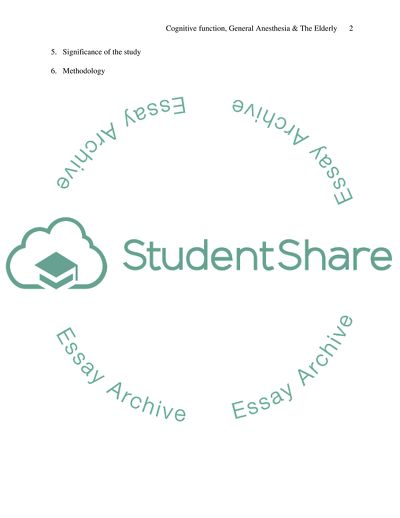Cite this document
(The Effects of General Anesthesia on Cognitive Dysfunction Research Paper, n.d.)
The Effects of General Anesthesia on Cognitive Dysfunction Research Paper. https://studentshare.org/nursing/1712755-what-effects-does-general-anesthesia-have-on-the-occurence-of-cognitive-dysfunction-in-elderly-patients-ages-60-80
The Effects of General Anesthesia on Cognitive Dysfunction Research Paper. https://studentshare.org/nursing/1712755-what-effects-does-general-anesthesia-have-on-the-occurence-of-cognitive-dysfunction-in-elderly-patients-ages-60-80
(The Effects of General Anesthesia on Cognitive Dysfunction Research Paper)
The Effects of General Anesthesia on Cognitive Dysfunction Research Paper. https://studentshare.org/nursing/1712755-what-effects-does-general-anesthesia-have-on-the-occurence-of-cognitive-dysfunction-in-elderly-patients-ages-60-80.
The Effects of General Anesthesia on Cognitive Dysfunction Research Paper. https://studentshare.org/nursing/1712755-what-effects-does-general-anesthesia-have-on-the-occurence-of-cognitive-dysfunction-in-elderly-patients-ages-60-80.
“The Effects of General Anesthesia on Cognitive Dysfunction Research Paper”. https://studentshare.org/nursing/1712755-what-effects-does-general-anesthesia-have-on-the-occurence-of-cognitive-dysfunction-in-elderly-patients-ages-60-80.


